Offering vinyl-style control at a bargain price, Hercules’s latest DJ controller is a game changer. Greg Scarth puts this unique controller through its paces.
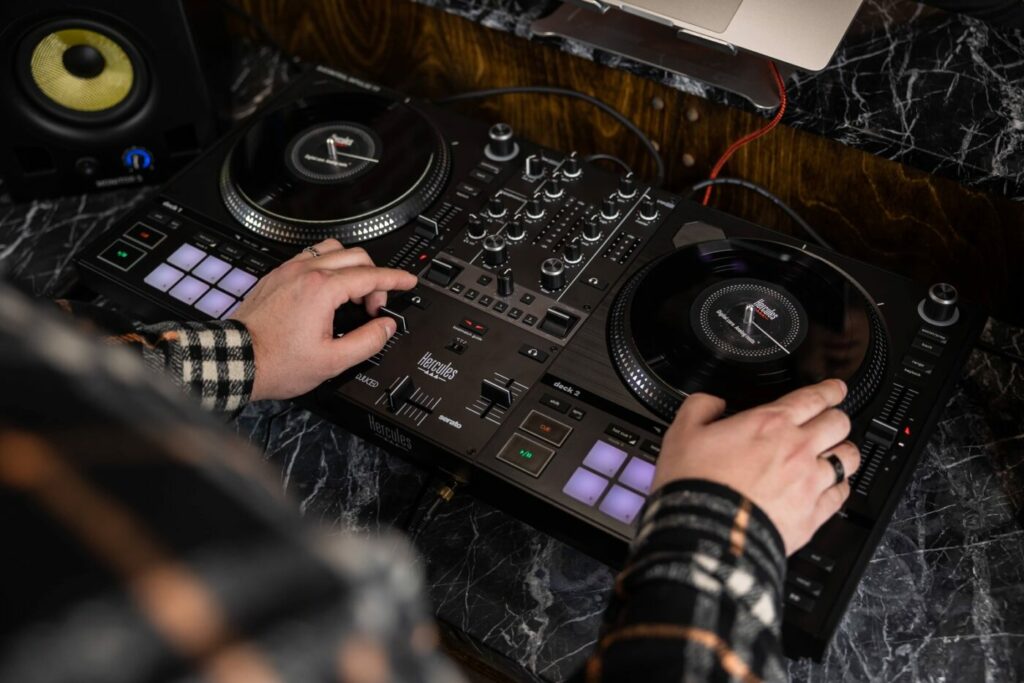
Best known for their entry-level DJ controllers, Hercules go under the radar sometimes but can be relied upon to offer excellent value for money. The new Hercules DJControl Inpulse T7 finds the brand out of their usual territory, targeting the mid-range market, but that trademark value is immediately evident. The T7 is a two-channel controller designed for Serato and Djuced, but its unique selling point when compared to other controllers is that it features motorised platters which use real 7-inch vinyl records as the contact point for controlling the playback of your tracks.
The closest obvious equivalent here is the excellent Rane One controller, based on similar technology to the US brand’s vinyl-style Twelve deck. The T7 isn’t quite as comprehensive in terms of features, but it’s similar in overall concept to the One. The main difference, though, is the price: the T7 comes in at less than half the price of the £1299 Rane offering. In fact, we reckon that the T7 must be the cheapest controller on the market to feature motorised jog wheels of any type. Even the most affordable models like the NI Traktor Kontrol S4 come in at over £700, and that’s with conventional motorised jogs rather than the vinyl-style platters you find here.
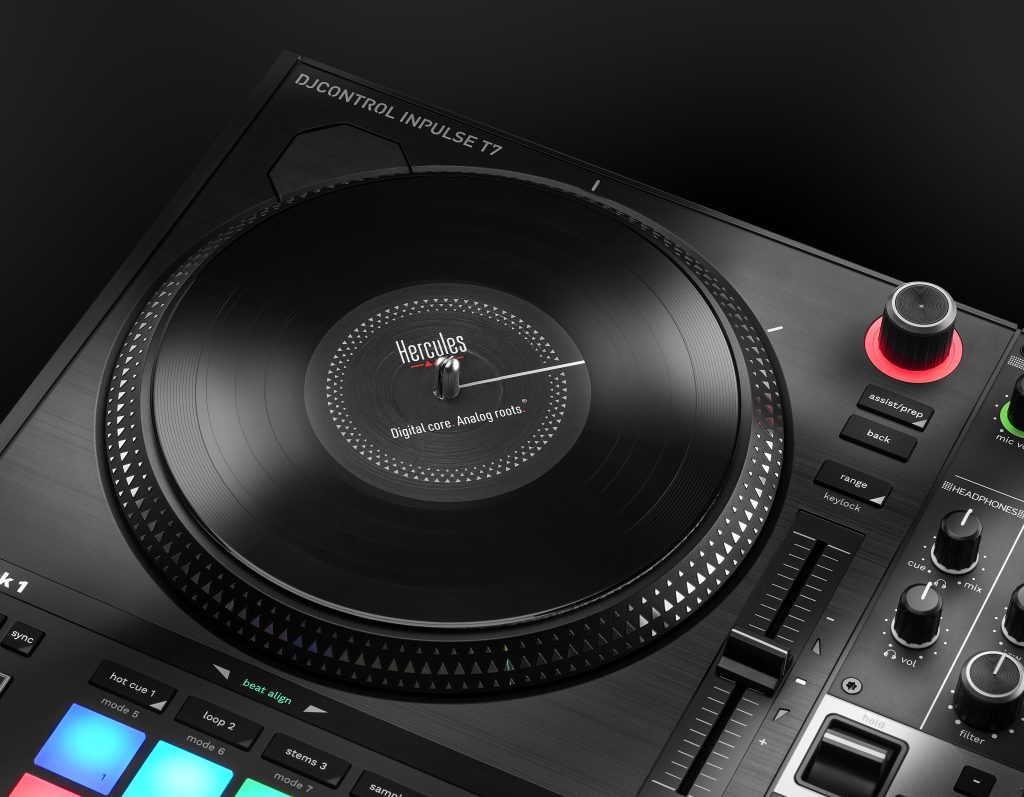
The T7 ticks all the usual boxes that you’d expect from a mid-range controller of its kind, with a well laid-out two-channel mixer section featuring effect paddles and pleasingly large filter knobs. Dedicated buttons let you access instrumental and vocal stems immediately via your software of choice, while a bank of eight RGB pads under each platter gives you access to hot cues, loops, samples and all the usual performance options.
But, cutting to the chase, the real reason we’re here is to find out how those spinning platters work. The T7 uses real 7-inch records which lock onto a specially designed spindle. With the controller hooked up to your laptop and a track loaded, hitting play starts the platter spinning and the record moves with it. The clever part is in that connection via the spindle, which allows the controller to track the movement of the record separately to the movement of the platter. Apply light pressure to the vinyl and your track will stop playing, even though the platter keeps spinning under the slipmat; the controller senses through the spindle that you’re stopping the record from spinning, even without any kind of stylus or timecode signal being determined from the grooves of the record themselves. Let go, and the track will come back up to speed with an authentic vinyl-style effect. The feel is uncannily like playing with real turntables, albeit miniature ones.
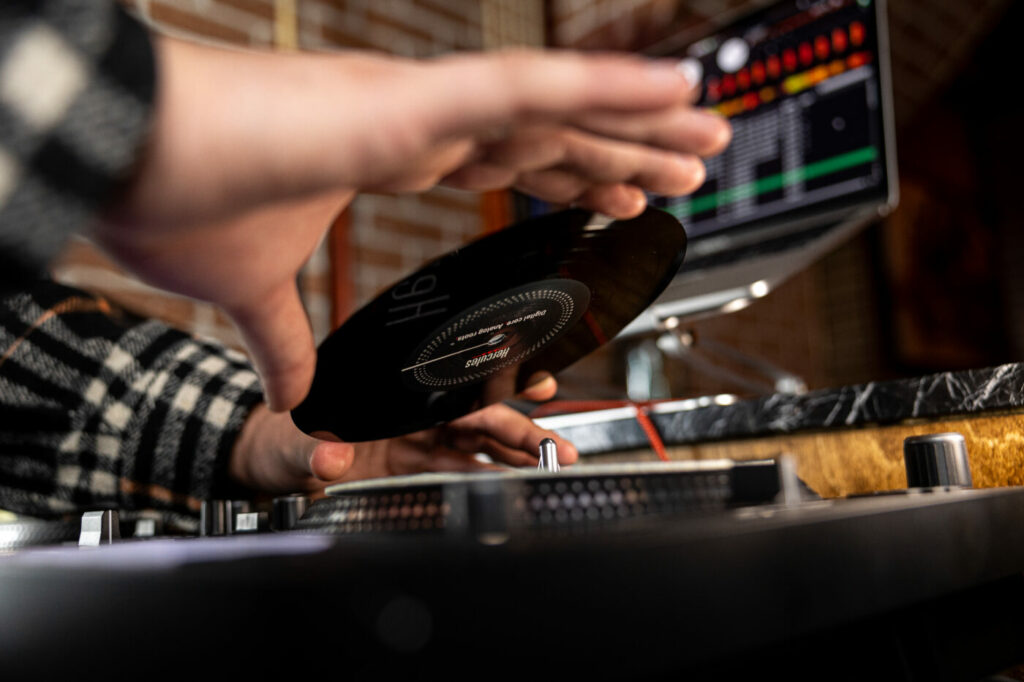
On that point, if you’re coming from the perspective of DJing with real turntables, the 7-inch-only format of the T7 might feel like a disadvantage, but when you factor in the platter size it’s more or less comparable with the size of jog wheels on industry standard gear (Pioneer’s flagship CDJ-3000s, for instance, have an 8.1-inch jog wheel). Compared to cueing or scratching a 12-inch record it feels slightly different in terms of hand placement relative to the spindle, angles and pressure, but you soon get the hang of it. The same goes for the platter itself, which offers a secondary way to beat match tracks, delaying or speeding up the track momentarily much as you would with a real turntable. Of course, because there’s no physical contact with a stylus to read timecode, you also have no need to worry about skips like you would with a conventional vinyl-based DVS setup.
Hercules include two 7-inch vinyl records and felt slipmats in the box, but you can use any record you like as a control surface, which is mainly an advantage in terms of aesthetics. In practice, the feel of the platter/vinyl setup doesn’t really change much from one record to the next, but you can see it might be fun to throw on a couple of 70s funk 45s for a beat juggling set, or throw on discs with iconic labels like Trojan or Motown to represent the style of music you’re spinning. It’s worth pointing out that the T7 definitely isn’t just a scratch controller, and it works really nicely for mixing and blending, or just playing out tracks with an old-school vinyl look and feel.
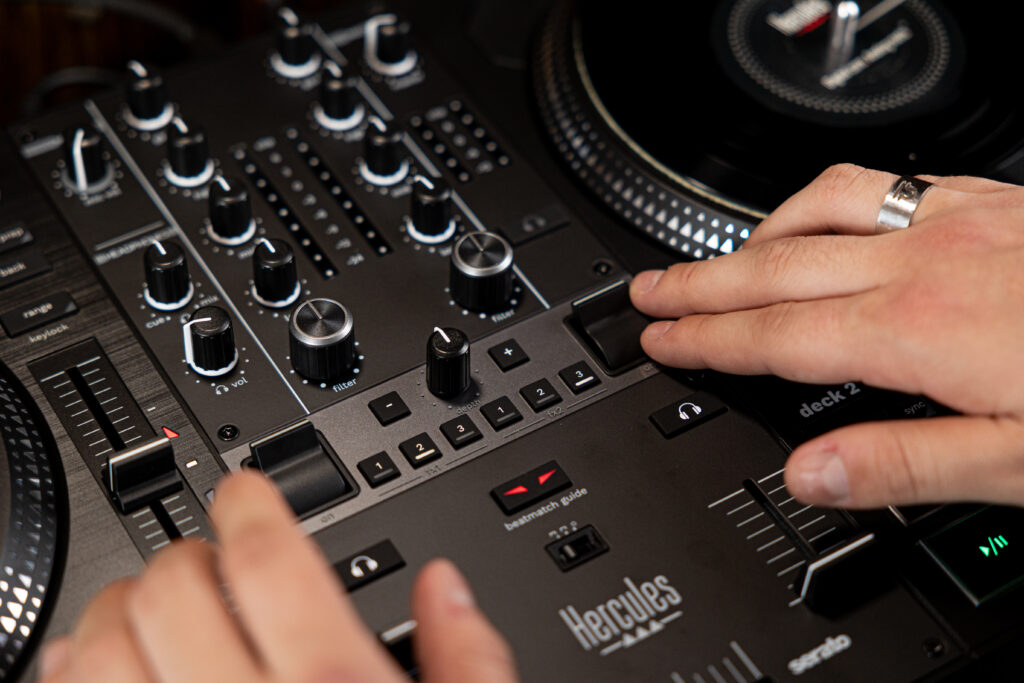
It might seem like stating the obvious that the T7 offers realistic vinyl feel, given that it uses actual vinyl as a contact point, but that’s only part of the story. The feel of DJing on turntables comes from the torque of the motor, the responsiveness of the drive system, the inertia of the platter and the friction of the slipmat as much as the record itself. The T7’s platters are belt-driven, but there’s plenty of torque to the motors and the interaction with the software somehow means it feels authentically like a decent direct-drive turntable, whether you’re scratching or blending.
Aside from the platters, which really do steal the show, the T7 is a very solid controller, with one caveat. The crossfader is functional and effective, with the option to switch between two different curves for scratching or mixing, or to bypass it entirely. However, it’s got a lightweight, loose feel which is good enough for mixing and blending – or even entry-level scratching – but realistically not quite up to it if you’ve got aspirations to be a more serious turntablist. The good news is that there’s a simple solution in the form of the optional InnoFader upgrade kit, which replaces all three faders with proper high-end equivalents. At just under £140, it’s a neat upgrade path for anyone who outgrows the standard faders.
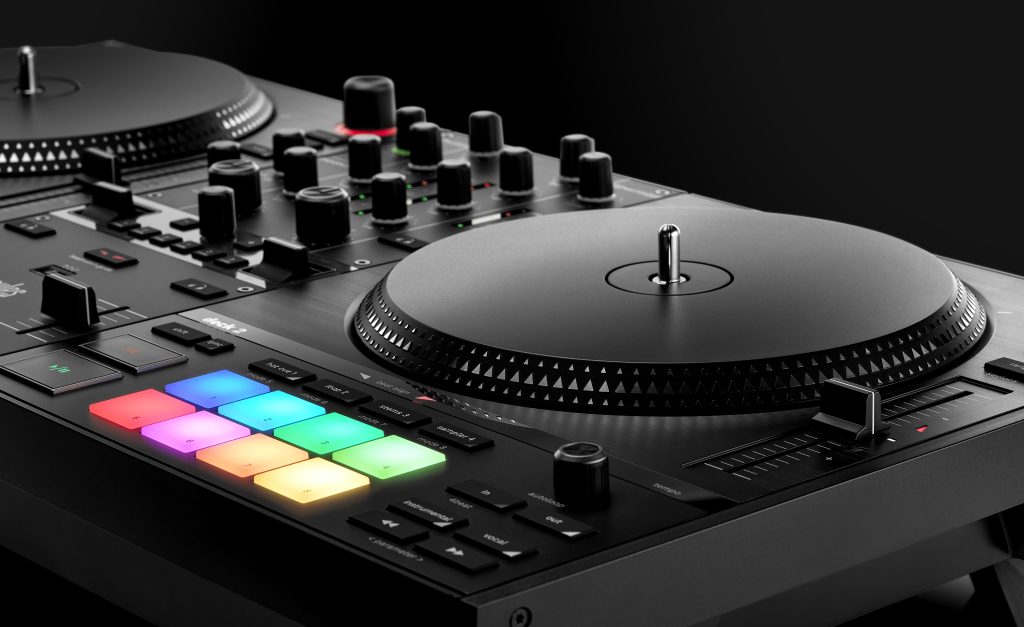
All of this has to be taken in the context of the Inpulse T7’s price point; coming in at under £600, what can we compare it to? The Rane One is a much higher-end product and features mixer inputs for other decks, but it’s well over twice the price. Even a single Rane Twelve MKII is around £40 more expensive. The closest Pioneer option at this price point would probably be the DDJ-FLX6-GT, which is slightly cheaper and has the advantage of being a four-deck controller, but crucially doesn’t have motorised jog wheels. At this point, the Inpulse T7 is a unique offering, bringing authentic vinyl feel to a more affordable price level than ever before. It’s a bargain, and it doesn’t feel like too much of a stretch to say that it’ll change the way lots of people approach DJing, making vinyl-style DVS control more accessible than ever before.
Greg Scarth
More info/buy